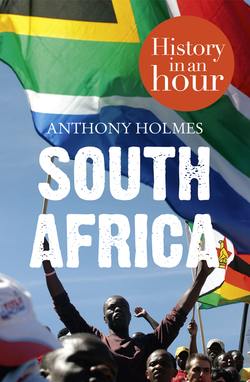Читать книгу South Africa: History in an Hour - Anthony Holmes, Anthony Holmes - Страница 8
Оглавление‘The Great Trek’ from British Rule
The Dutch-speaking colonists did not take kindly to British rule. They blamed the new administration for not providing sufficient protection from the Xhosa, abolishing slavery, and espousing a new liberalism towards black Africans. 1836 witnessed the first of several migrations to the north and north-east. Approximately 14,000 people, including servants and employees, embarked on what collectively became known as the ‘Great Trek’, the mass migration of Dutch-speaking colonists searching for a promised land where they could establish a free and independent state. The lifestyle of the ‘trekboers’ (nomadic farmers) enabled them to pack their possessions into ox-drawn wagons and leave the colony forever.
The families who set out from the eastern frontier towns represented a small fraction of the Dutch-speaking inhabitants of the colony. Called Dutch Boers by the British, they called themselves as Afrikaners. Their pioneering courage is remembered as the most important aspect of Afrikaner folk memory.
Represented in later days as a peaceful and God-fearing journey into the unknown, the Great Trek caused tremendous upheaval in the lives of the indigenous people. Messengers made their way to the chiefs of the Sotho clans to report that the white men were coming in their hundreds.
The Voortrekker Monument
The Voortrekkers (pioneers) had to face the uninviting prospect of the barren Kalahari Desert, the tsetse fly belt, and the realm of the deadly malarial mosquito. Yet they trekked onwards, intent on gaining access to ports beyond the sphere of British control, at Delagoa Bay, Inhambane, and Sofala. In order for their new settlement to be viable, it was crucial that they establish independent trading links with Europe.
The British resented any intrusion by other European powers in their colony’s affairs. Whenever ‘foreign’ interference was detected, the British used the expedient of annexing the territory concerned. In the 1840s, the Voortrekkers of the Republic of Natalia endeavoured to open contacts with the Netherlands, so the British annexed Natal, but recognized independent Boer republics in Transvaal and the Orange Free State. In the 1880s Germany annexed South West Africa (modern Namibia) resulting in the British pre-emptive action of annexing Bechuanaland (modern Botswana).
